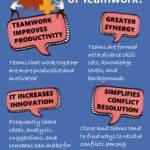
Around the World Game
Around the World is an active game and an activity ice breaker to energize people and create a fun group climate.
Within a large, open playing space, designate three or four areas as belonging to well-known cities or countries, for example, New York, Paris, Tokyo and Sydney. Ask each person to stand in the area belonging to that city or country that they’d like to visit the most.
Typically, you will not achieve an even distribution of people, nor is this necessary. However, you do need at least two people in an area to get started.
Next, explain that each person has exactly two minutes to travel around the world as many times as possible. Suggest that all travel occurs in the same direction (eg clockwise,) so in effect, everyone is aiming to clock up as many rotations (of the world) as possible in the allotted time.
To move from one city or country to the next, a person must win a quick game involving any person standing in the same area. The ‘winner’ is permitted to advance clockwise to the next city, while the ‘loser’ will remain in the same area and engage a new, random person in a new quick game.
The person who completes the most number of rotations (of all areas) within the allotted time is declared the winner.
¿How to play a quick game?
One partner begins by calling “HIDE” which will cause both of you to place your hands behind your back and extend a certain number of fingers on one or both hands.
When ready, the other partner will say “GO”, causing both people to push their hands forward so that all four hands can be seen.
The first person to say the correct sum of all the extended fingers is the winner.
Moment of Reflection
- How many rotations of the ‘world’ did you accomplish?
- How did it feel to win several rounds in a row?
- How did it feel to lose several rounds in a row? What did you tell yourself?
What strategies did you employ to help you win?
The topics of this publication: interactions, observation skills, motivation, disinhibition, distension, strategy, competencies, energize


